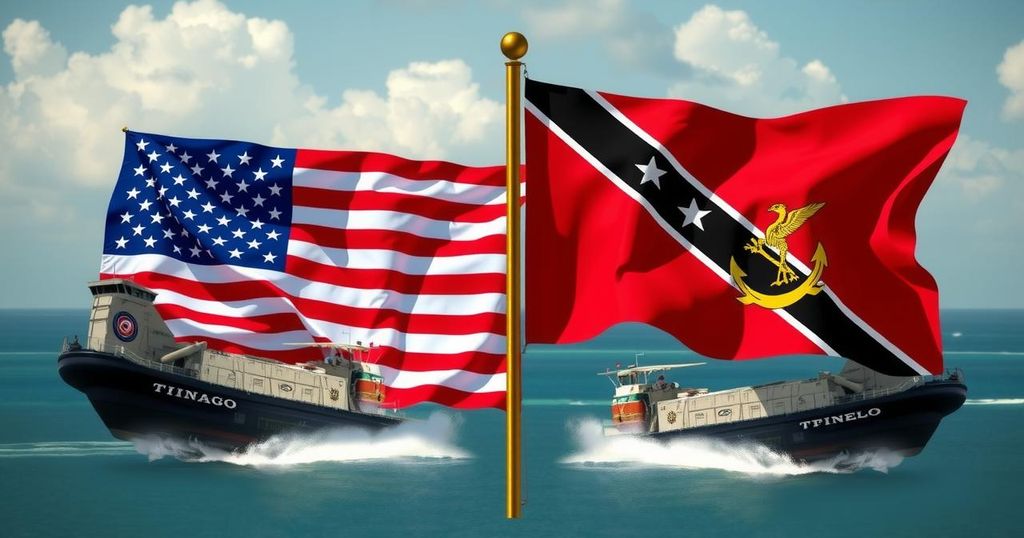The U.S. and Trinidad and Tobago have renewed military agreements, including a new Status of Forces Agreement aimed at enhancing defense cooperation. However, local media suggested these would enable U.S. troop deployments in Venezuela conflicts, an assertion rejected by Prime Minister Rowley, who emphasized Trinidad’s commitment to regional peace and non-interference.
On December 10, 2024, the United States and Trinidad and Tobago reaffirmed their military cooperation by signing five agreements, including an amendment to the Status of Forces Agreement (SOFA). This agreement aims to enhance the interoperability of their armed forces, facilitating defense collaboration. U.S. officials assert that the renewed agreements signify unprecedented opportunities for defense cooperation, as stated by U.S. Ambassador Candace Bond. However, the agreements raised concerns following claims by local media suggesting that they would allow U.S. troop deployments in response to conflicts in Venezuela, a notion Prime Minister Keith Rowley vehemently denied. He condemned this interpretation as profoundly irresponsible, emphasizing Trinidad and Tobago’s commitment to regional peace and rejecting the idea of serving as a platform for foreign military operations. Despite these assertions, the specifics of the agreements remain undisclosed. Trinidad and Tobago’s relationship with Venezuela has recently seen developments in energy projects, illustrating the delicate balance the Rowley administration seeks to maintain amidst U.S. pressures and regional tensions.
The renewal of military agreements between the United States and Trinidad and Tobago indicates a strengthening of defense ties, with potential implications for regional security dynamics. The SOFA originally was established to facilitate the U.S. military presence while respecting Trinidad and Tobago’s sovereignty. Concurrently, tensions surrounding Venezuela, exacerbated by U.S. sanctions and military activity, create a complex backdrop for Trinidad’s foreign policy. Prime Minister Rowley’s denouncement of troop deployment claims underscores Trinidad’s historical stance on non-interference and diplomacy within the Caribbean.
The recent signing of military agreements between the U.S. and Trinidad and Tobago reflects a commitment to defense cooperation amidst regional complexities, particularly concerning Venezuela. Prime Minister Rowley’s firm denial of troop deployment allegations underscores Trinidad’s stance on maintaining regional peace and sovereignty. This situation exemplifies the delicate diplomatic balancing act that Trinidad and Tobago must navigate as it continues to engage in energy partnerships with Venezuela while managing U.S. relations.
Original Source: venezuelanalysis.com






